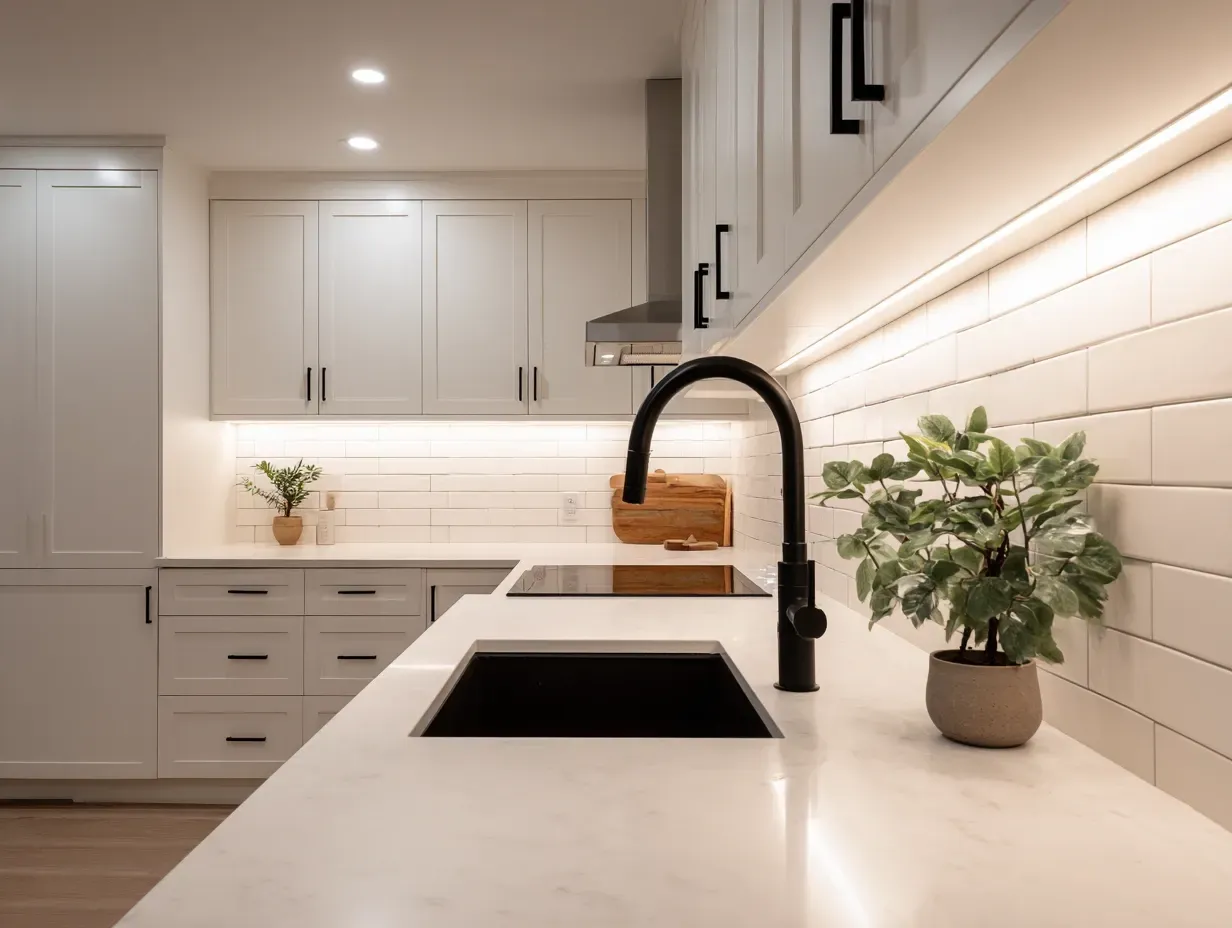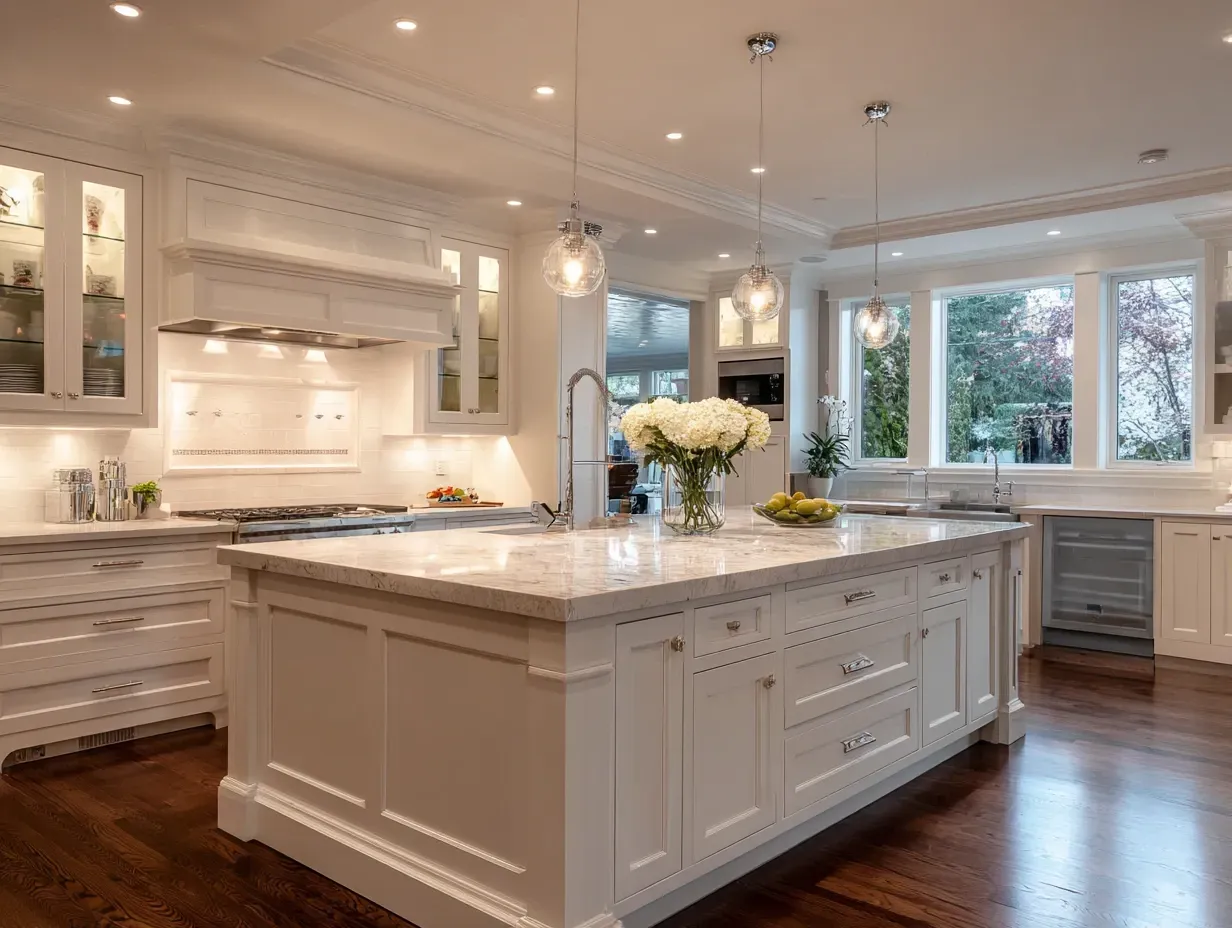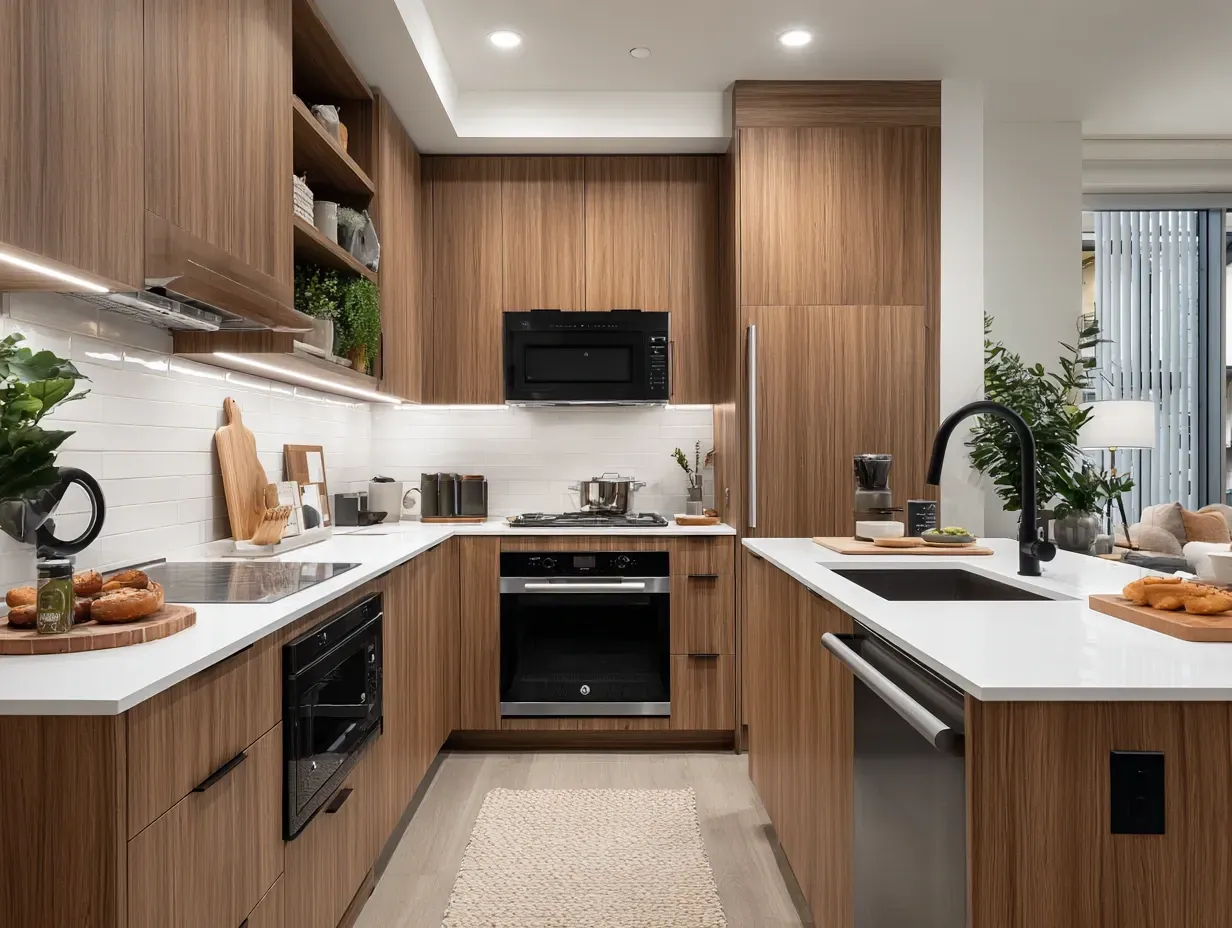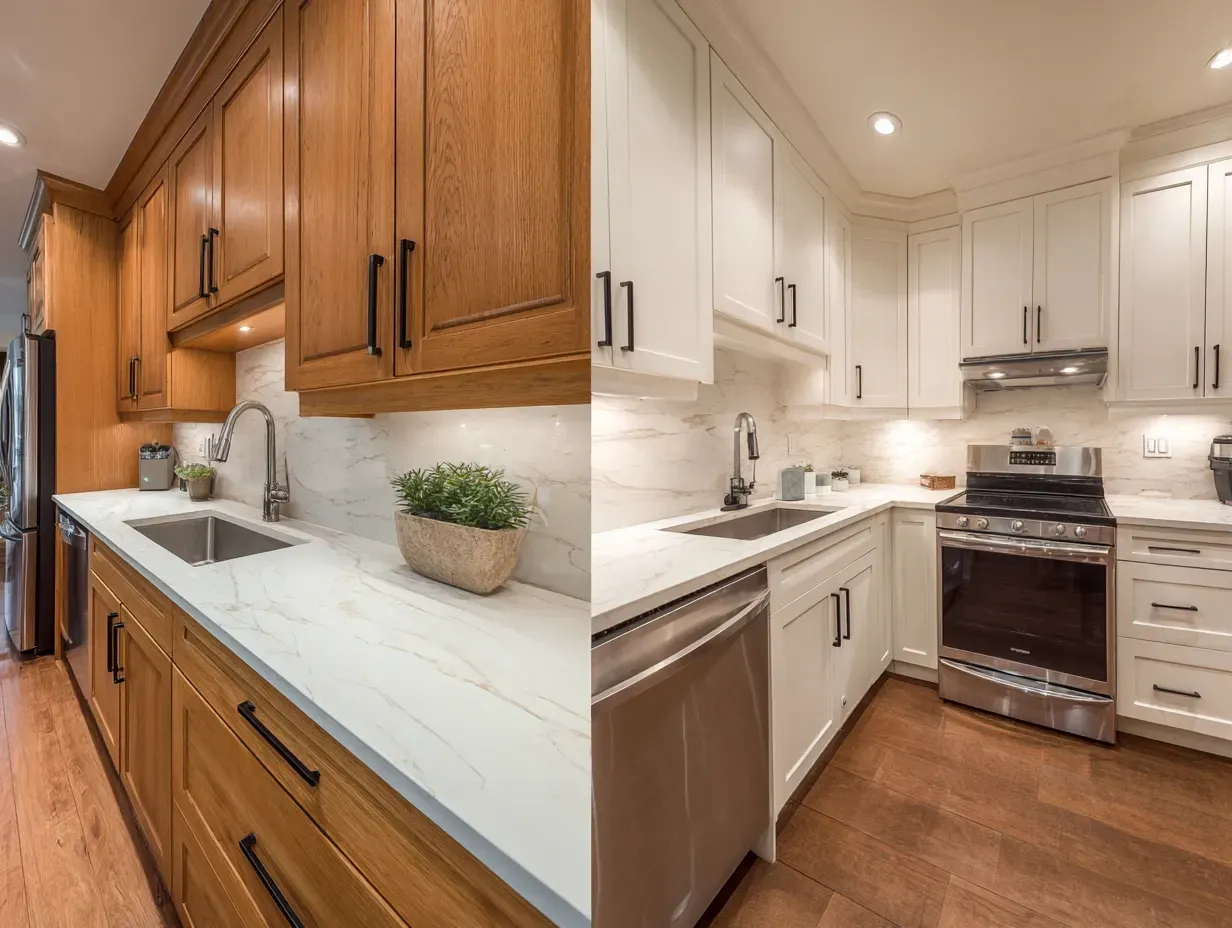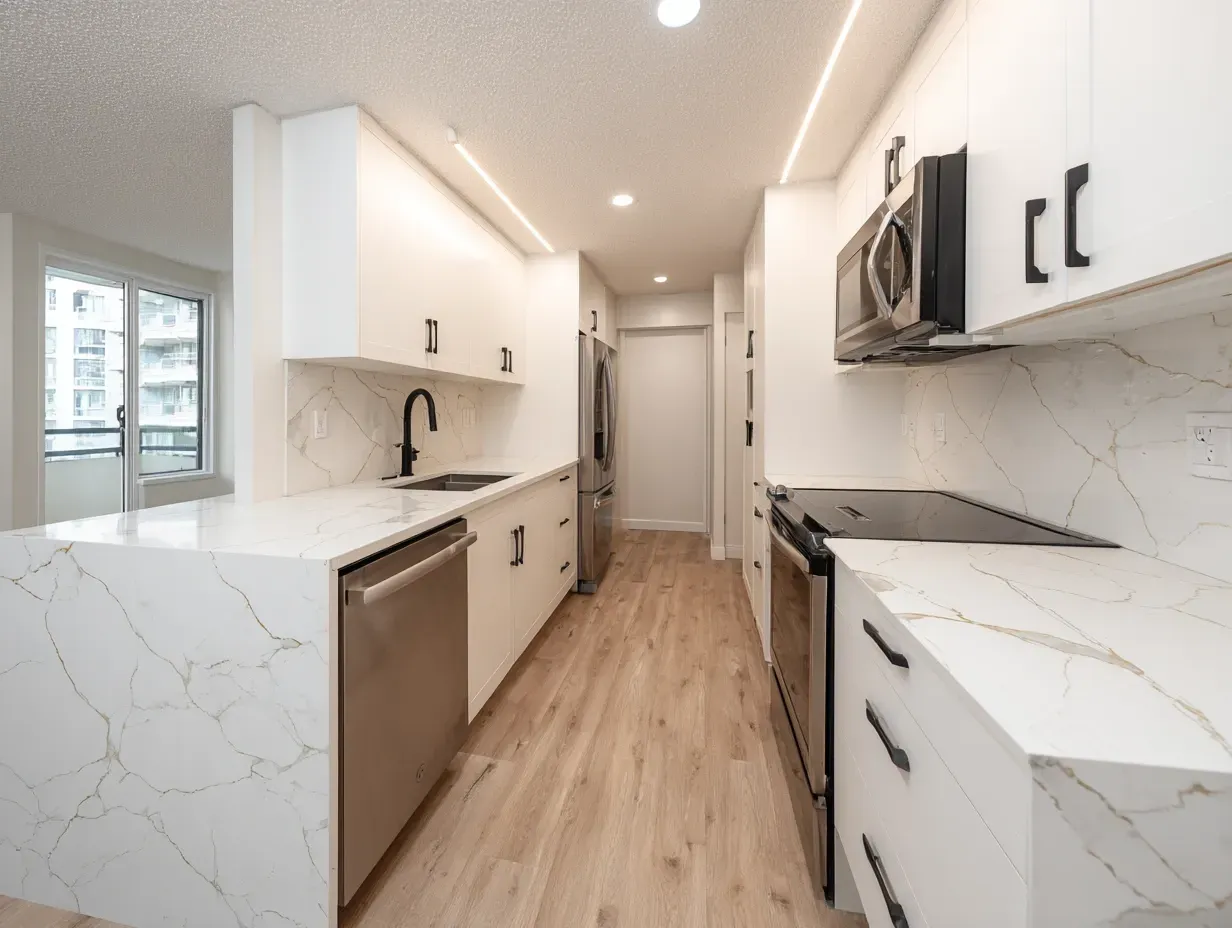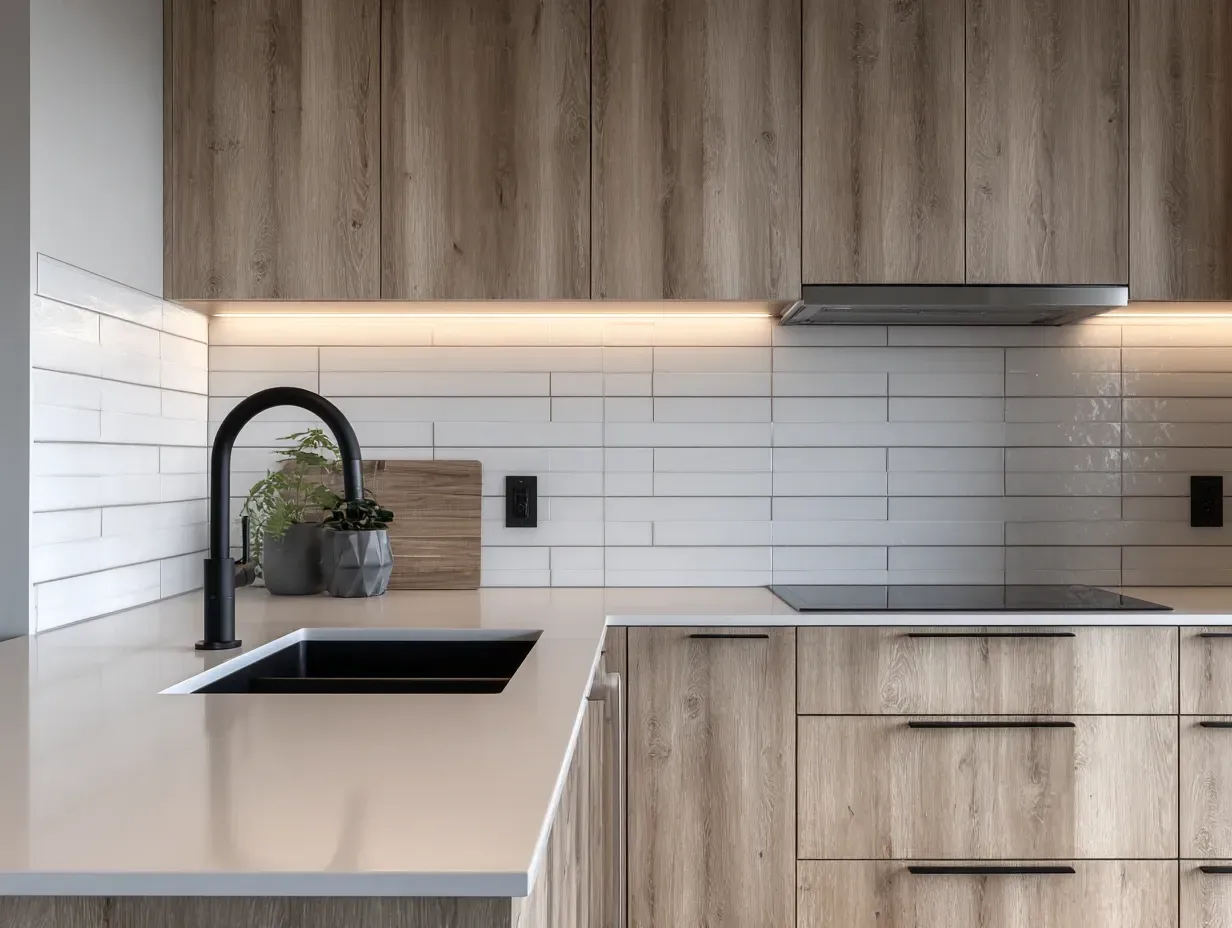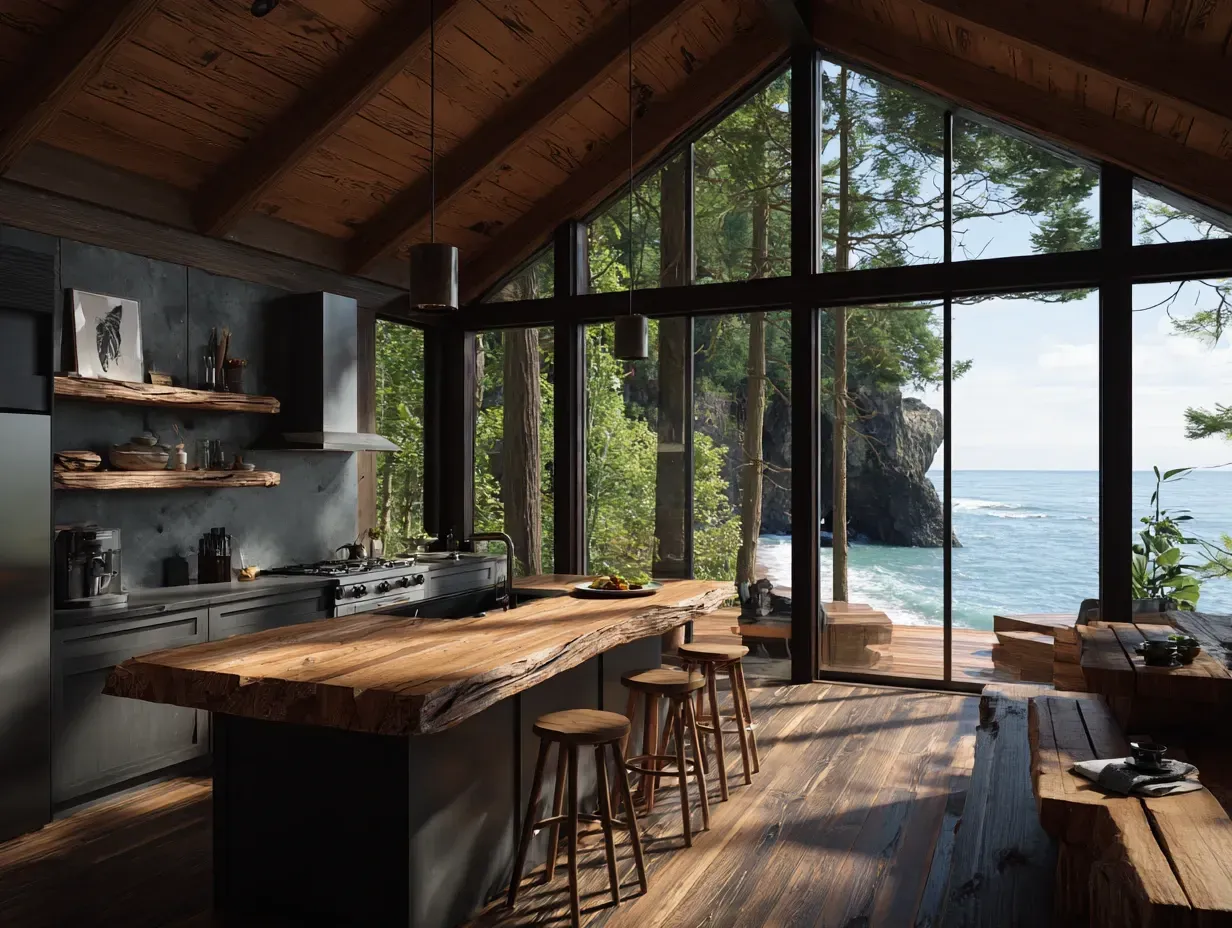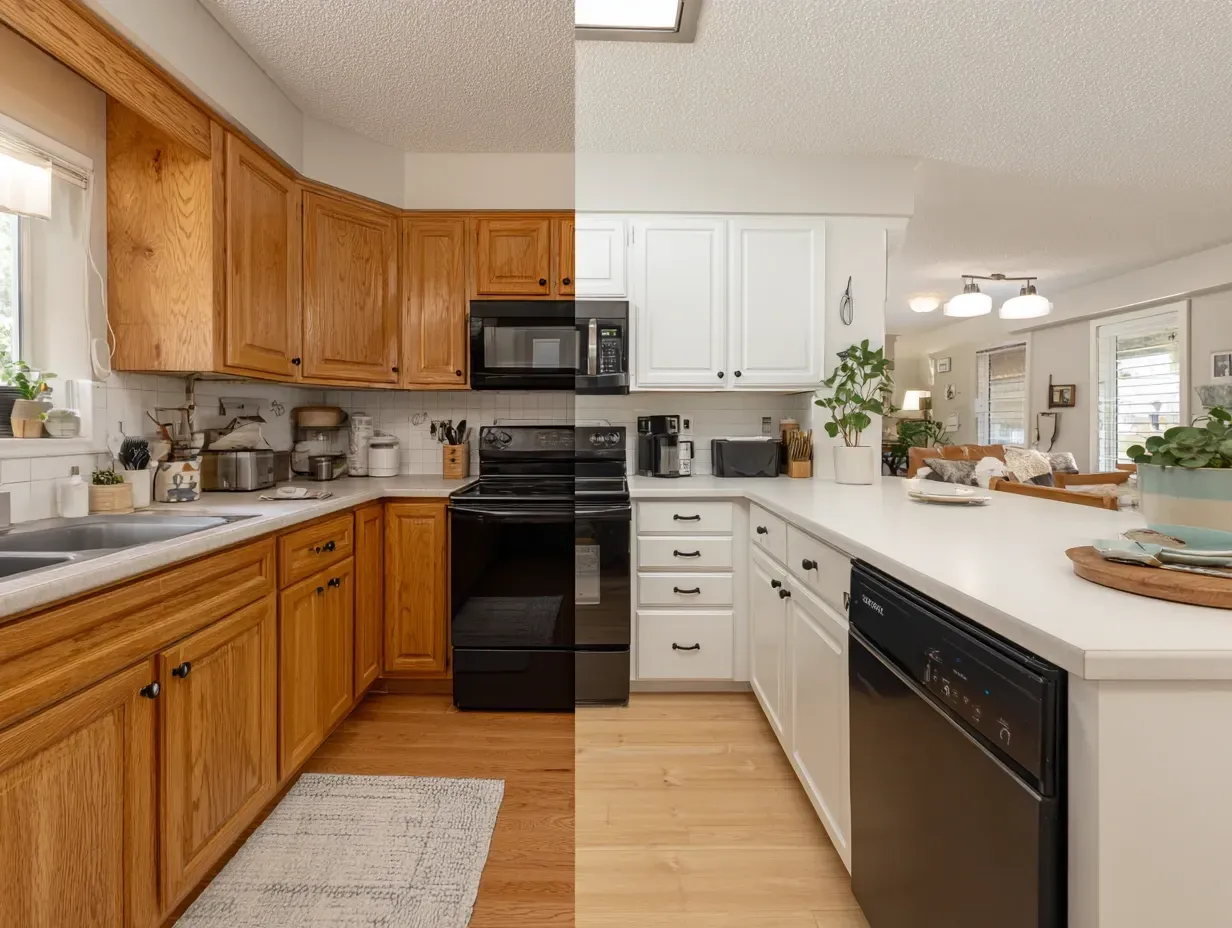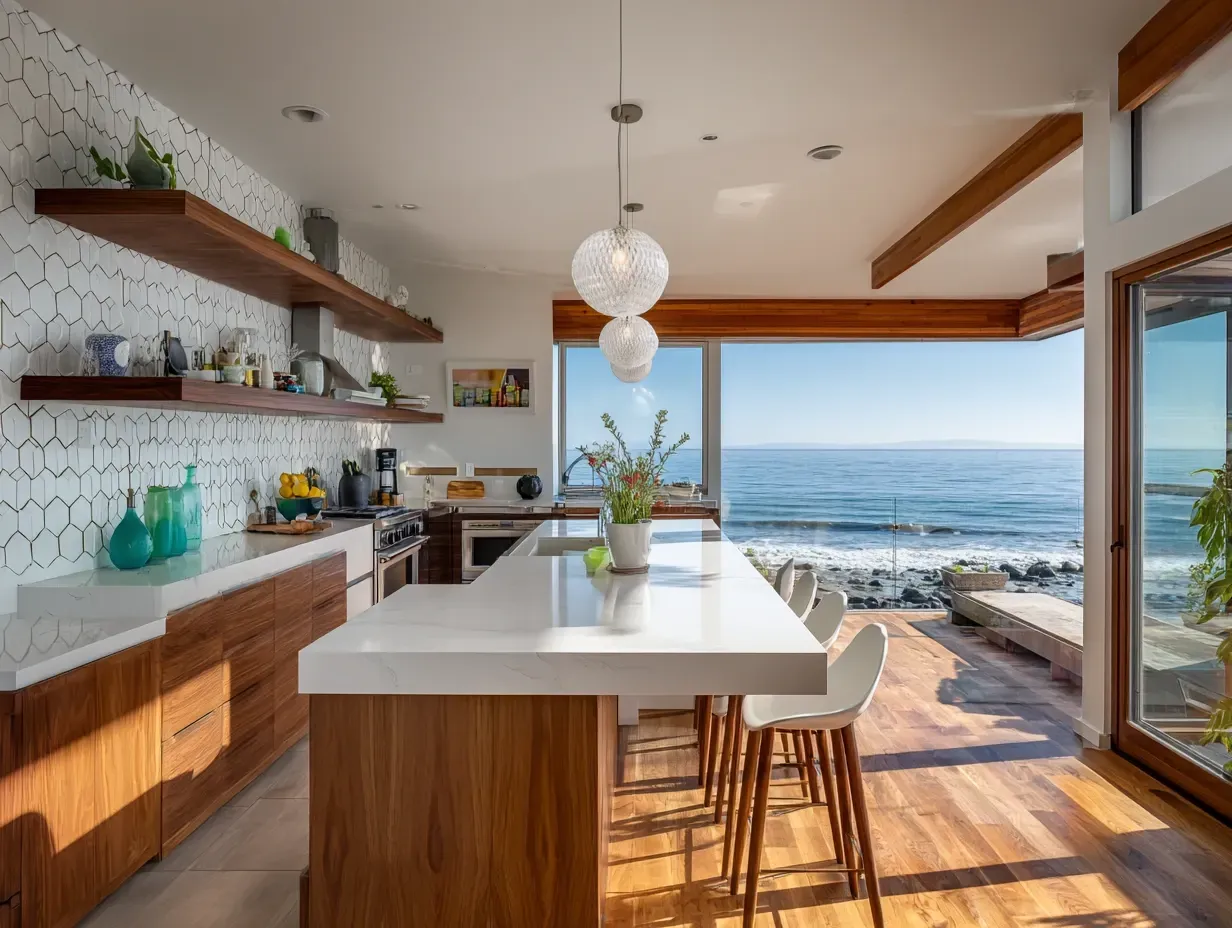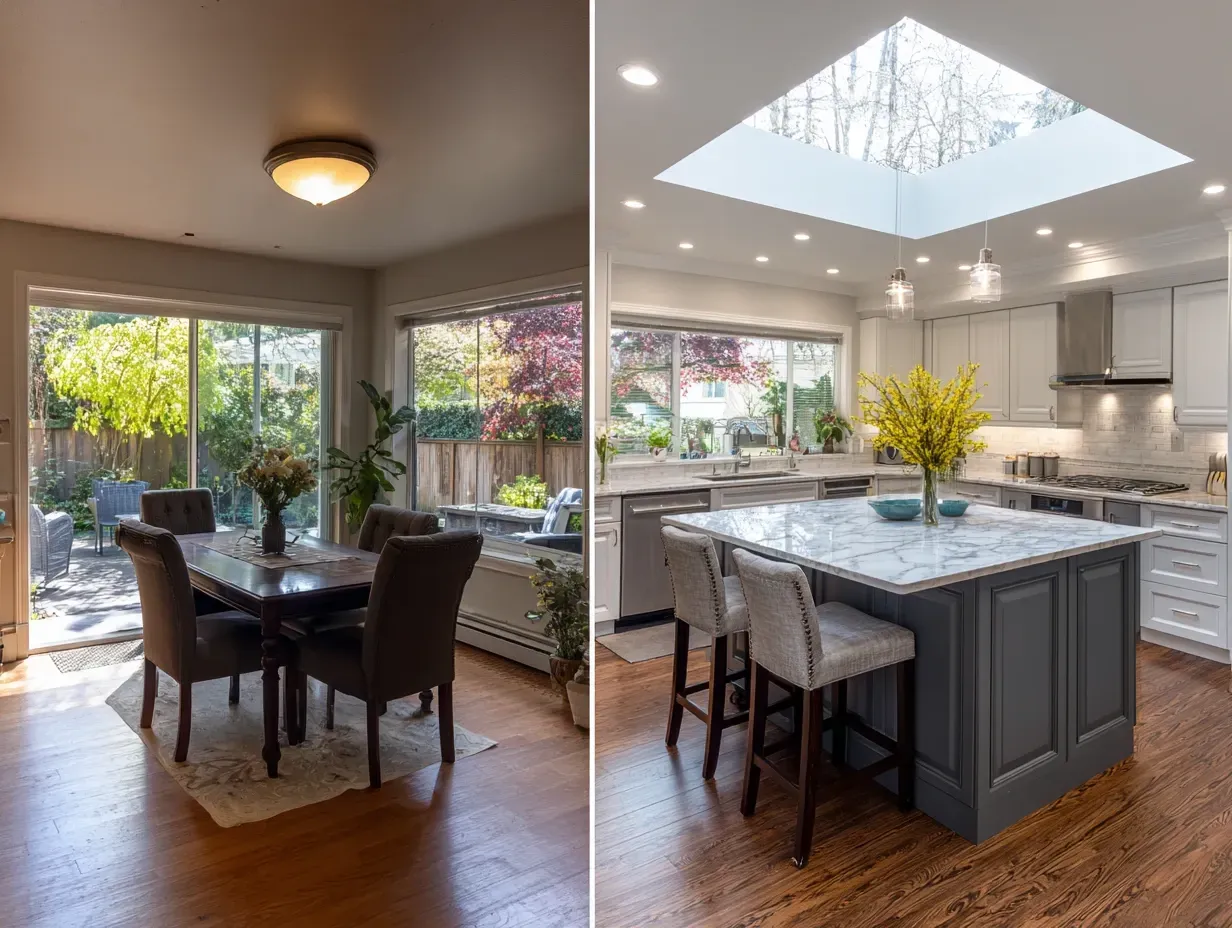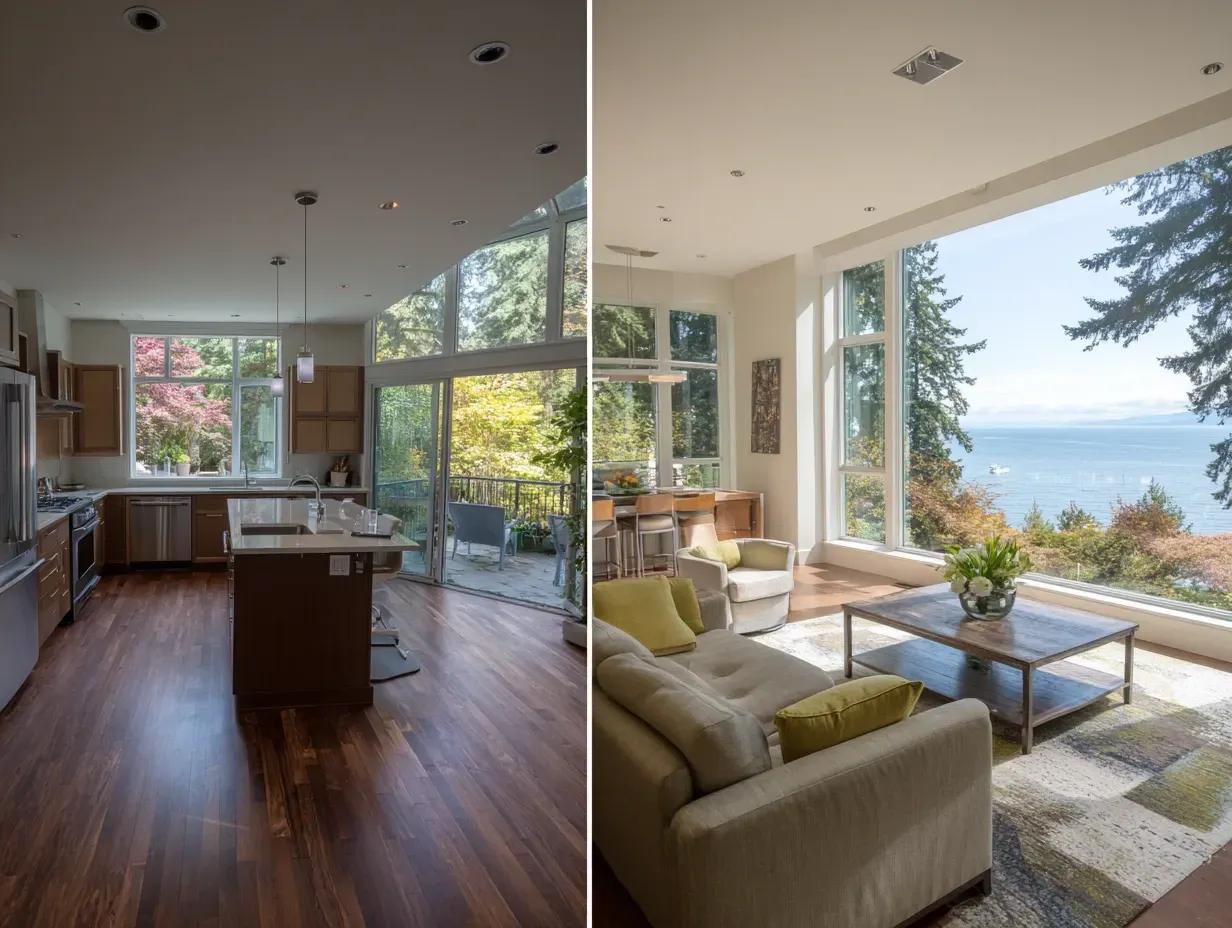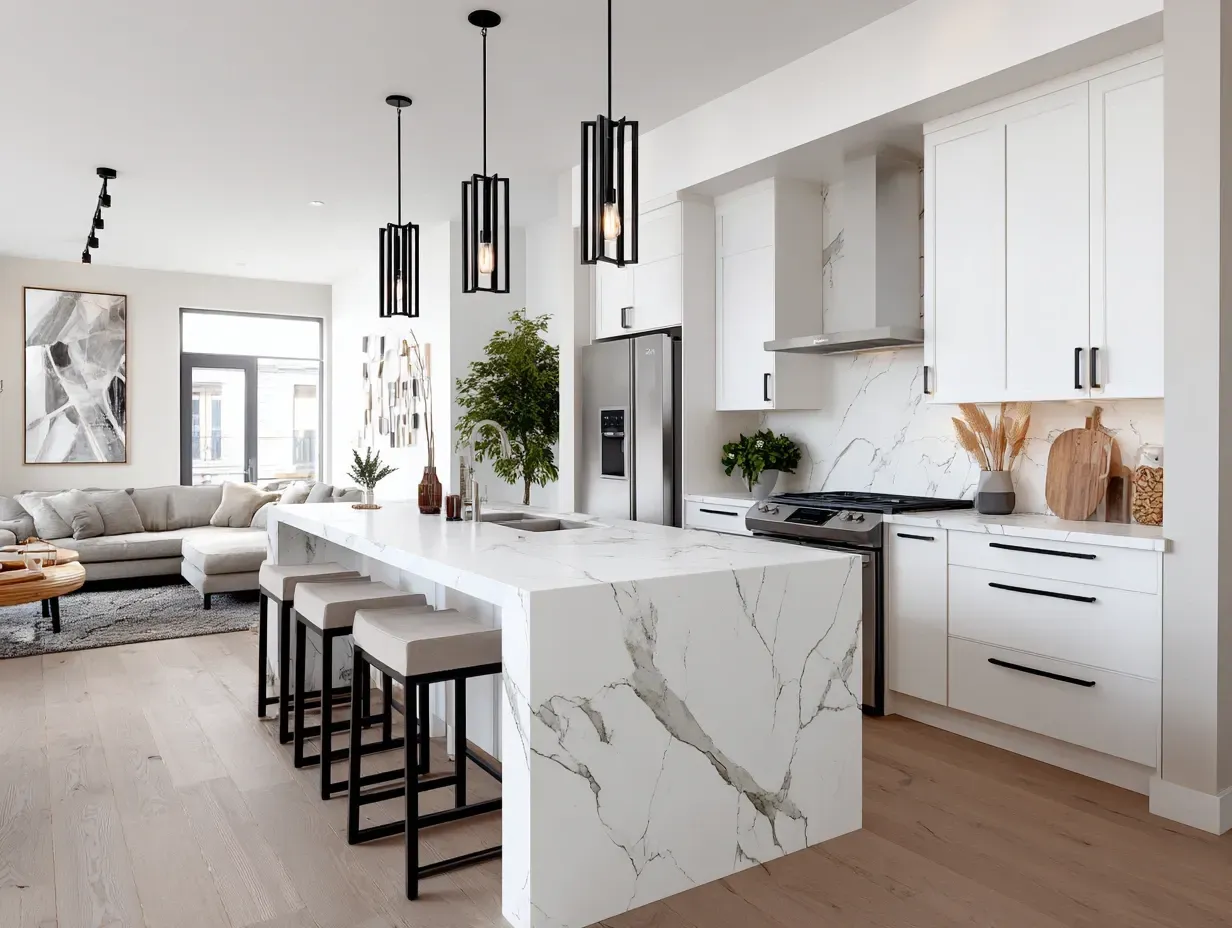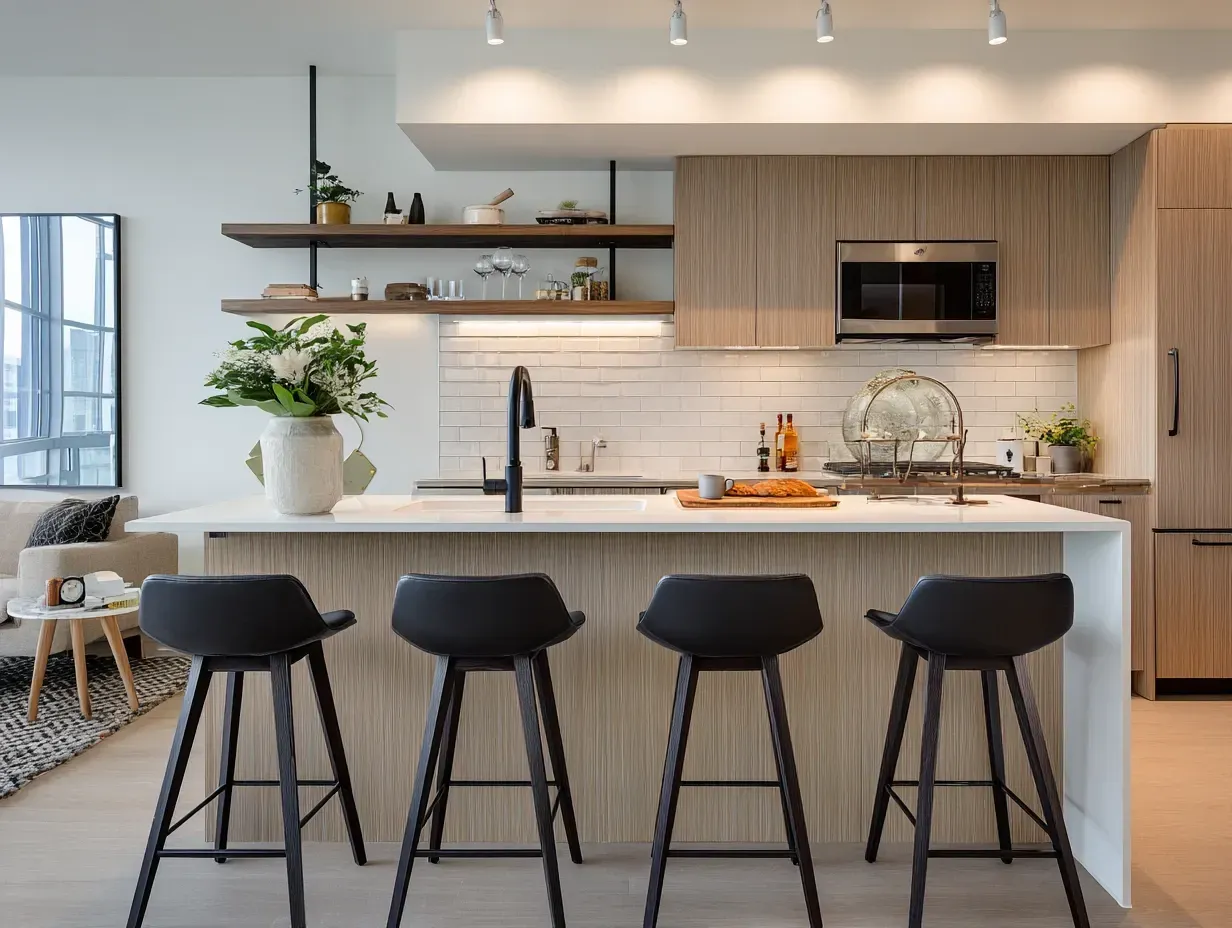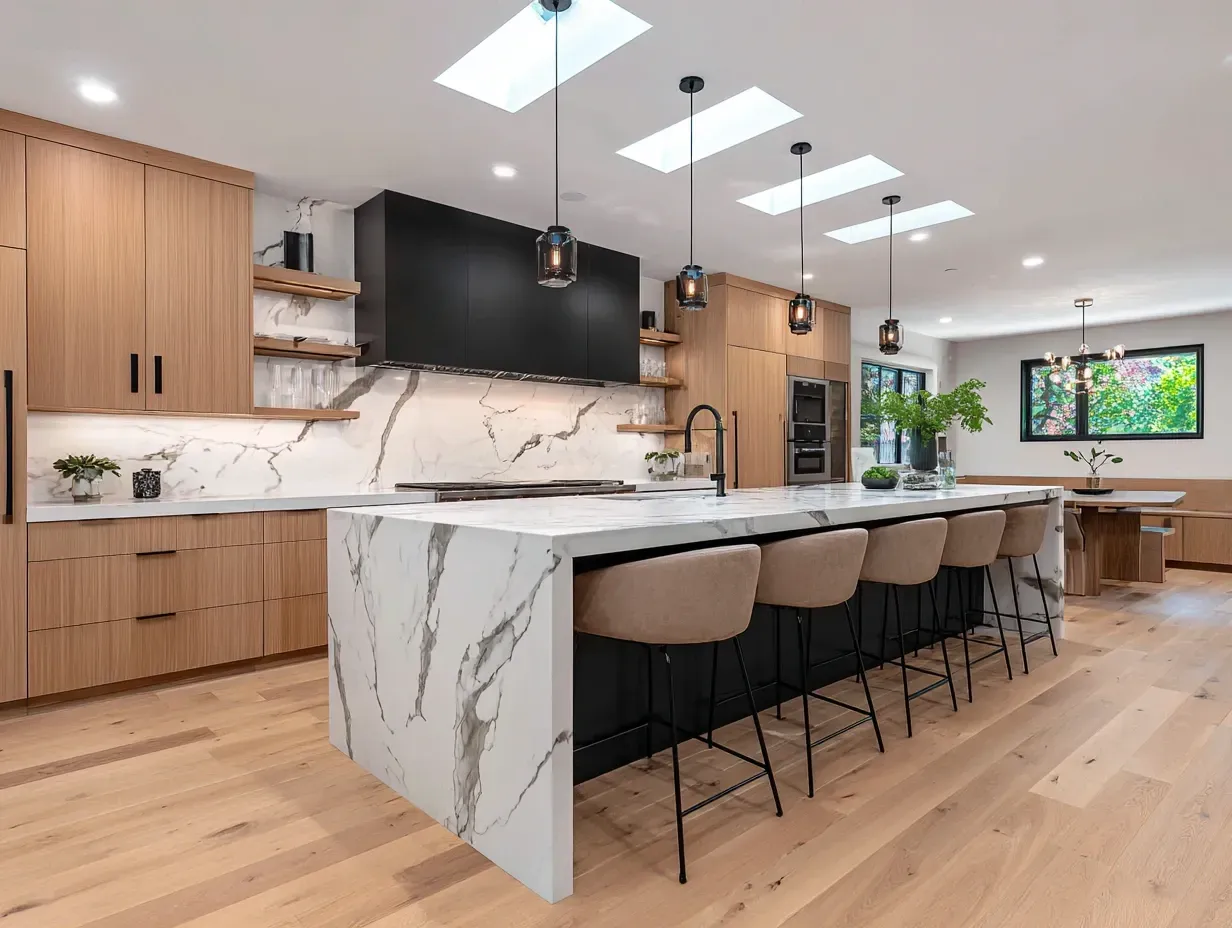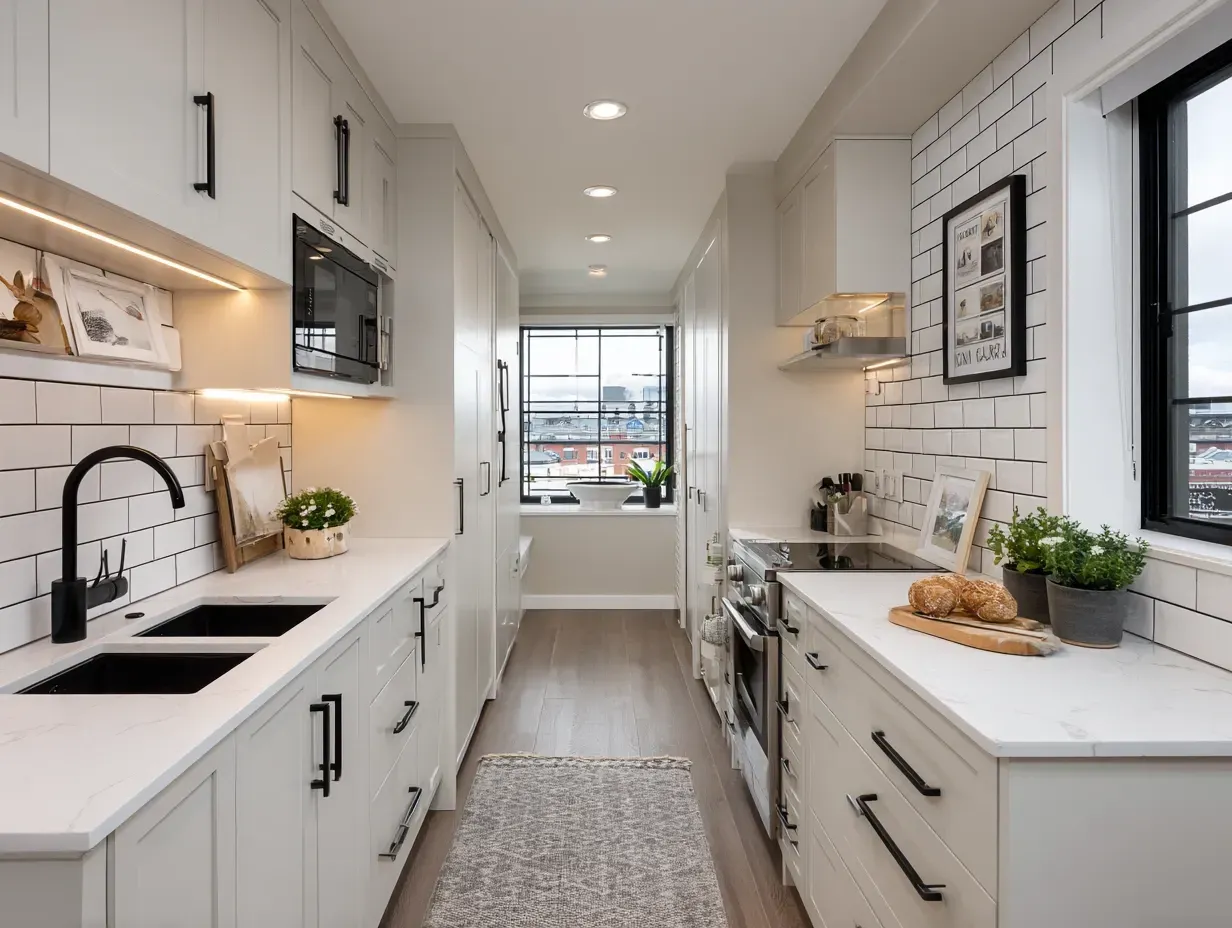Granite vs Quartz Countertops: Pros and Cons for Your Kitchen
Granite vs. Quartz Countertops: Guide to Choosing the Best for Your Vancouver Kitchen
In the journey of a kitchen remodel, few decisions are as impactful as choosing your countertops. This is your primary work surface—the stage for meal preparation, casual family breakfasts, and social gatherings.
It is also one of the most significant visual elements in the room, capable of defining the kitchen’s entire character.
For decades, the undisputed king of high-end countertops was granite, a symbol of luxury and natural beauty. But in recent years, engineered quartz has surged in popularity, becoming the go-to choice for designers and homeowners alike.
The debate between these two titans—Granite, the timeless natural wonder, and Quartz, the engineered modern marvel—is about much more than just appearance.
It’s a complex decision that involves weighing durability, maintenance, style, and cost. In a discerning and design-forward market like Vancouver, where homeowners expect both beauty and performance, understanding the distinct pros and cons of each material is essential.
This guide will provide a detailed, up-to-date comparison to help you make a confident and informed choice for the heart of your home.
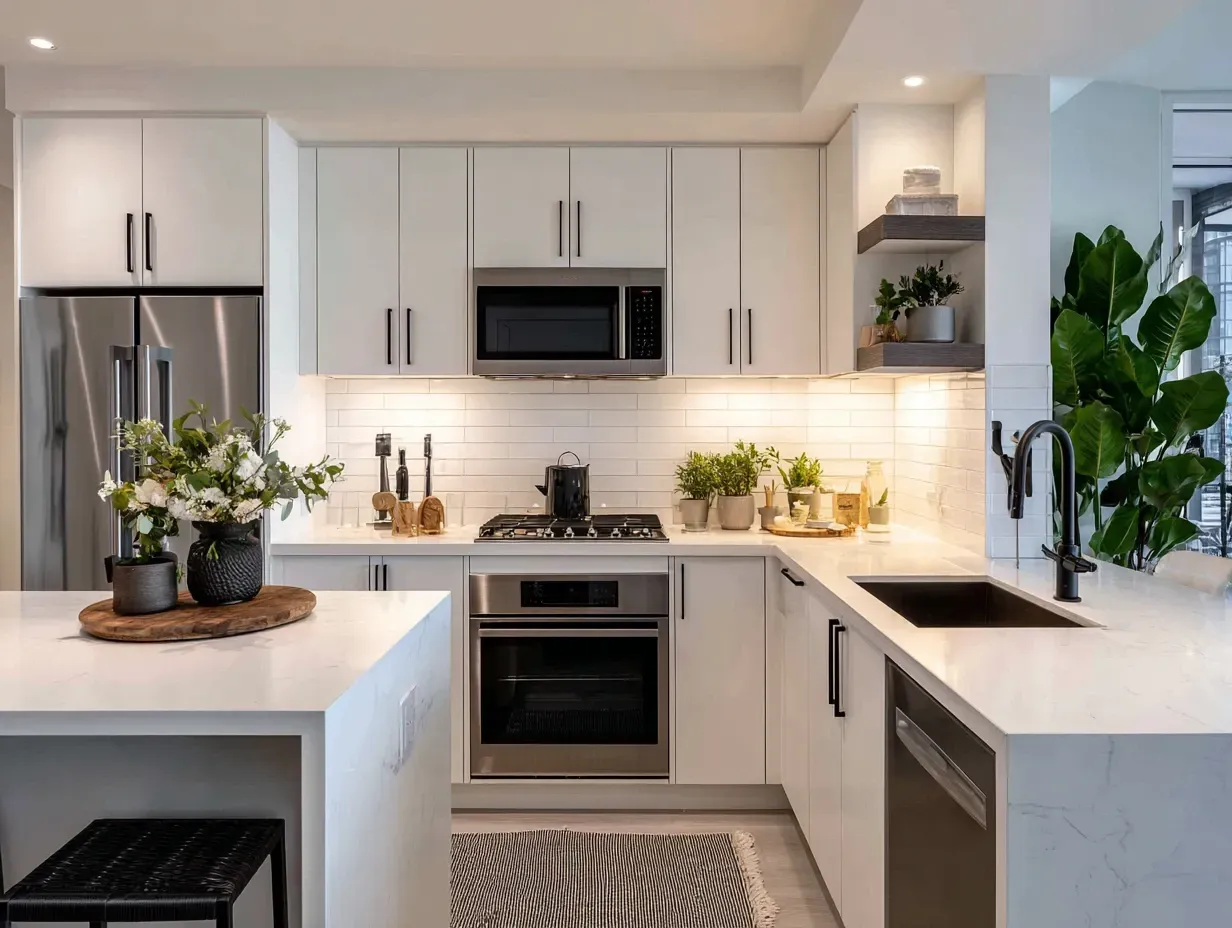
Timeless and Unique: The Case for Granite Countertops
For generations, granite has been the benchmark for a luxury kitchen. It is a 100% natural igneous rock, forged deep within the earth’s crust from cooled magma.
Quarried in massive blocks from mountainsides around the world, it is then sliced into slabs, polished, and custom-fabricated for your home. The defining characteristic of granite is that every single slab is a unique piece of geological art, a snapshot of millions of years of natural history.
The Pros of Granite
- One-of-a-Kind Natural Beauty: This remains granite's most compelling advantage. No two granite countertops are ever identical. The intricate patterns, the depth of colour, the specks of minerals, and the organic movement of the veining are created by nature and are impossible to perfectly replicate. For many homeowners, the experience of visiting a local stoneyard to hand-select their specific, unique slab is a cherished part of the renovation process.
- Exceptional Heat Resistance: Because it was formed by immense heat and pressure, granite is naturally resistant to high temperatures. You can place a hot pot or pan directly from the stove or oven onto its surface without fear of scorching or cracking. While the use of trivets is always recommended to protect your investment, this inherent heat tolerance is a major benefit for avid cooks.
- Durability and Hardness: Granite is an incredibly hard and durable material, resistant to scratches and everyday wear and tear. With proper care, a granite countertop can look as good as the day it was installed for decades.
- Adds Proven Real Estate Value: Granite has a long-standing and well-earned reputation as a premium building material. A beautiful, well-maintained granite countertop is a proven asset that adds tangible value to a home.
The Cons of Granite
- Requires Regular Maintenance: The most significant drawback of granite is its porous nature. Like a sponge, it has microscopic pores that can absorb liquids, leading to stains from spills like red wine, oil, or coffee if not cleaned up promptly. To prevent this, granite countertops must be sealed upon installation and then re-sealed periodically—typically every one to three years, depending on the specific stone’s porosity and the amount of use it gets. This maintenance routine is a deal-breaker for some homeowners.
- Can Chip or Crack: While extremely hard, granite is also brittle. A heavy object dropped on an edge or corner can cause a chip. While these can be professionally repaired, the fix may still be visible.
- Inconsistencies and Seams: The unique nature of granite can also be a challenge. The small sample you see in a showroom may not fully represent the colour and pattern variations of the full slab. Furthermore, in kitchens that require more than one slab, matching the pattern and colour at the seams can be very difficult, resulting in a visible and sometimes disruptive break in the flow of the countertop.
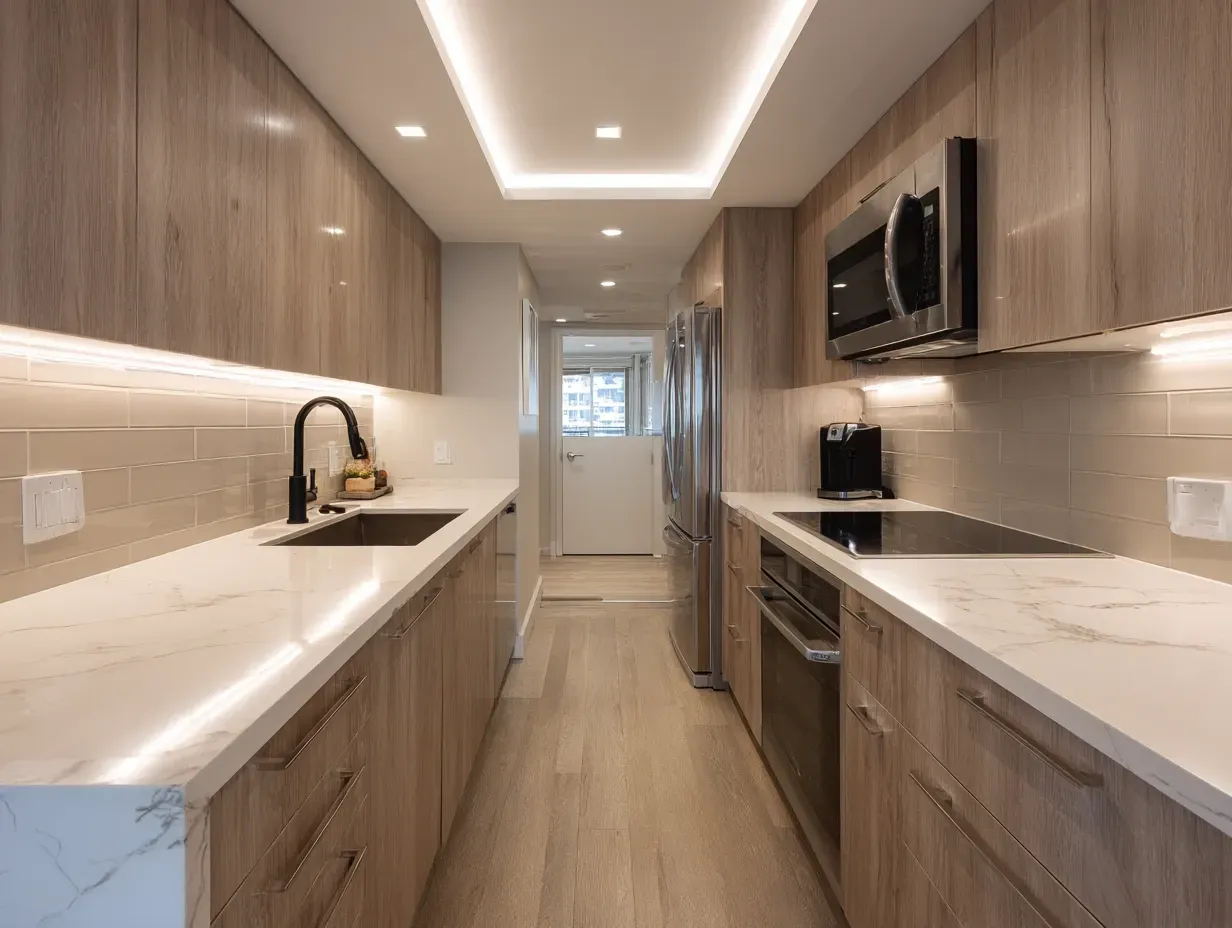
Consistency and Convenience: The Power of Engineered Quartz
Quartz countertops are a triumph of modern engineering, designed to offer the beauty of natural stone without its inherent drawbacks.
It is a man-made product, composed of approximately 90-95% crushed natural quartz minerals—one of the hardest substances on earth—which are then mixed with polymer resins for binding and pigments for colour.
This slurry is poured into a mold, compressed under immense pressure, and cured into an incredibly dense and durable, non-porous slab.
The Pros of Quartz
- Zero Maintenance: This is the number one reason for quartz’s meteoric rise in popularity. The manufacturing process renders the material completely non-porous. It never needs to be sealed and is highly resistant to staining from everyday kitchen culprits. This “set it and forget it” quality makes it incredibly easy to live with and is a massive selling point for busy Vancouver families and professionals.
- Superior Durability: Because it is engineered with such a high concentration of quartz minerals, it is technically harder and more durable than granite. It is exceptionally resistant to scratches, chipping, and cracks from daily use.
- Design Consistency and Versatility: As a manufactured product, the colour and pattern of a quartz slab are remarkably consistent from one end to the other, and from slab to slab. This means the sample you choose in the showroom is exactly what will be installed in your home. This consistency also makes seams nearly invisible, creating a clean, monolithic look. Manufacturers can produce an endless variety of styles, from solid, vibrant colours to designs that convincingly mimic the look of marble, concrete, or granite.
- Hygienic Surface: The non-porous nature of quartz means there is nowhere for bacteria, viruses, or mold to penetrate and grow, making it an exceptionally hygienic surface for food preparation.
The Cons of Quartz
- Not Heat-Proof: This is the most critical distinction from granite. The polymer resins used to bind the quartz particles can be damaged by extreme heat. Placing a hot pot or pan directly on a quartz surface can cause permanent discoloration or, in rare cases, thermal shock that can lead to cracking. The use of trivets is not just recommended—it is essential.
- Can Discolour in Direct UV Light: Over many years of exposure to direct, intense sunlight (for example, from a large skylight or south-facing window), the resins in some quartz countertops, particularly lighter colours, can be prone to yellowing. For this reason, it is generally not recommended for outdoor kitchen applications.
- Lacks the “Natural” Depth:
While high-end quartz designs that mimic natural stone are incredibly realistic, they can sometimes lack the unique, three-dimensional depth and organic randomness found in a true granite slab. For a natural stone purist, the engineered perfection might feel less authentic.
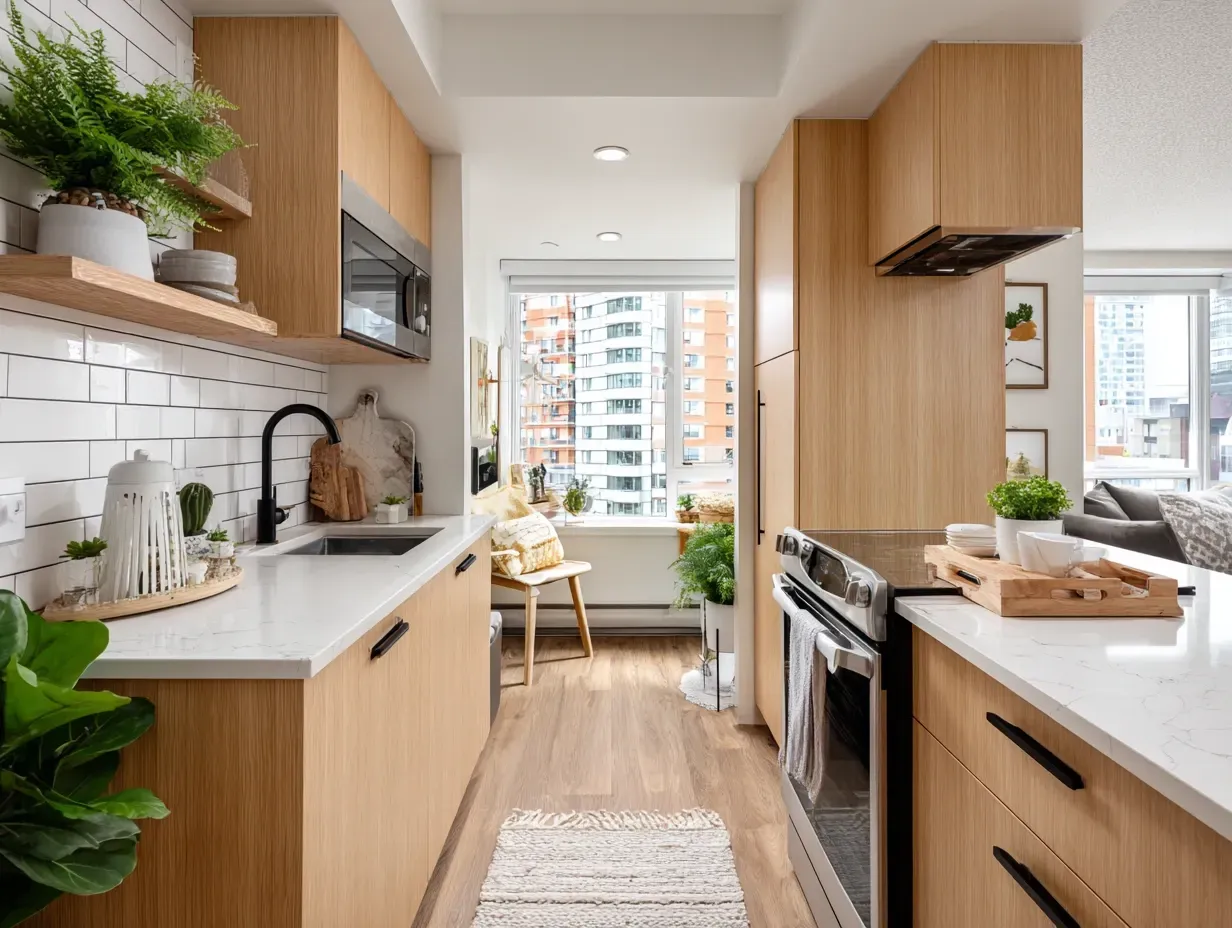
The Vancouver Context: Making the Choice for Your Kitchen
In the Vancouver market, the decision often comes down to the intersection of style, lifestyle, and value.
- Style: The dominant aesthetic in new builds and renovations across the city continues to be West Coast Modern, Scandinavian, and minimalist. Quartz, particularly in finishes that mimic the subtle veining of Calacatta or Carrara marble, or in sleek, industrial-look concrete greys, aligns perfectly with this clean, bright, and uncluttered style. While a stunning exotic granite can be a show-stopping centerpiece in a luxury home, some of the more common, speckled granites can feel dated compared to the sophisticated offerings of modern quartz.
- Lifestyle: The Vancouver lifestyle is often busy and family-focused. The zero-maintenance, stain-resistant, and hygienic properties of quartz are perfectly suited to homeowners who value convenience and peace of mind. For them, not having to worry about spills or annual sealing is a significant quality-of-life benefit.
- Value: Both granite and quartz are considered premium materials that add significant value to a home. A high-quality quartz countertop is a highly desirable feature that buyers have come to expect in a modern, renovated kitchen. A beautiful and well-maintained granite countertop is also a strong selling point, especially if it’s a unique slab that makes a design statement.
The Final Verdict
Ultimately, there is no single "better" material. The choice between granite and quartz boils down to your personal priorities.
- Choose Granite if: You are a purist who deeply values the one-of-a-kind, natural artistry of real stone. You want superior heat resistance for serious cooking, and you don’t mind the simple, routine maintenance of sealing your countertops to protect your investment.
- Choose Quartz if: You prioritize a maintenance-free, worry-free surface that is incredibly durable and easy to clean. You desire a specific, consistent look—like the elegance of marble without its fragility—and you live a busy lifestyle where convenience is king.
By carefully weighing these distinct advantages and disadvantages against your own aesthetic preferences, cooking habits, and tolerance for maintenance, you can confidently choose the perfect countertop to serve as the beautiful and hardworking foundation of your
Vancouver kitchen for many years to come.
Recent Posts
